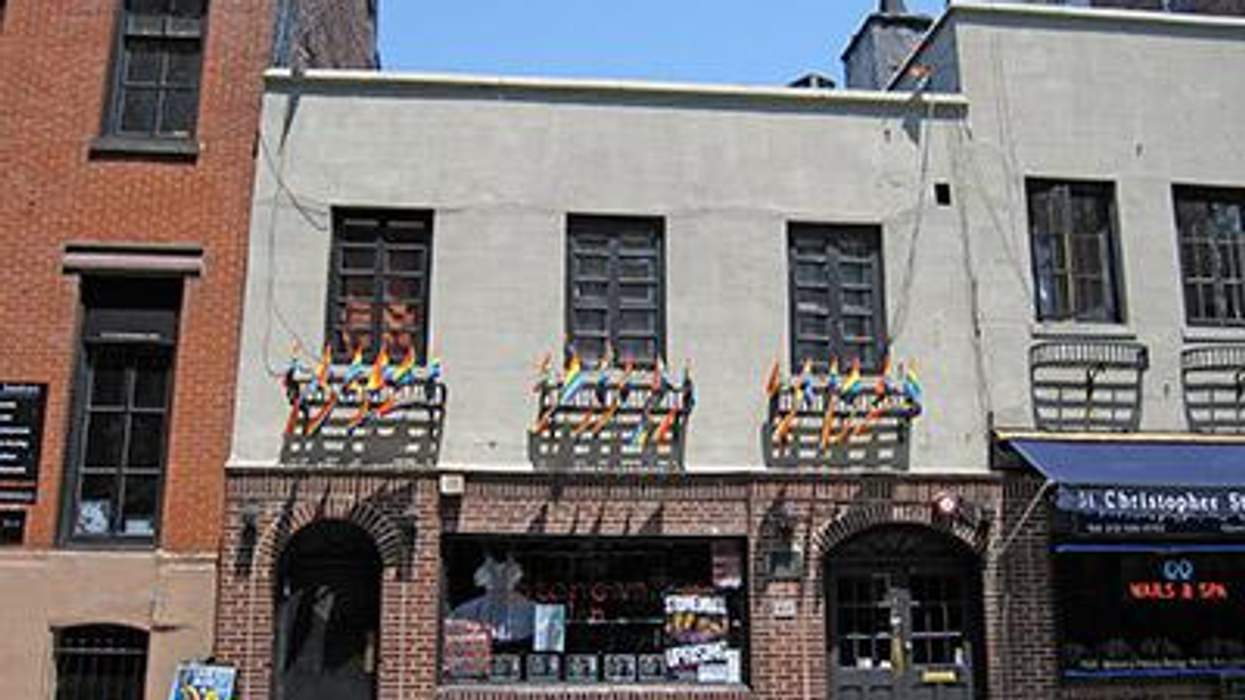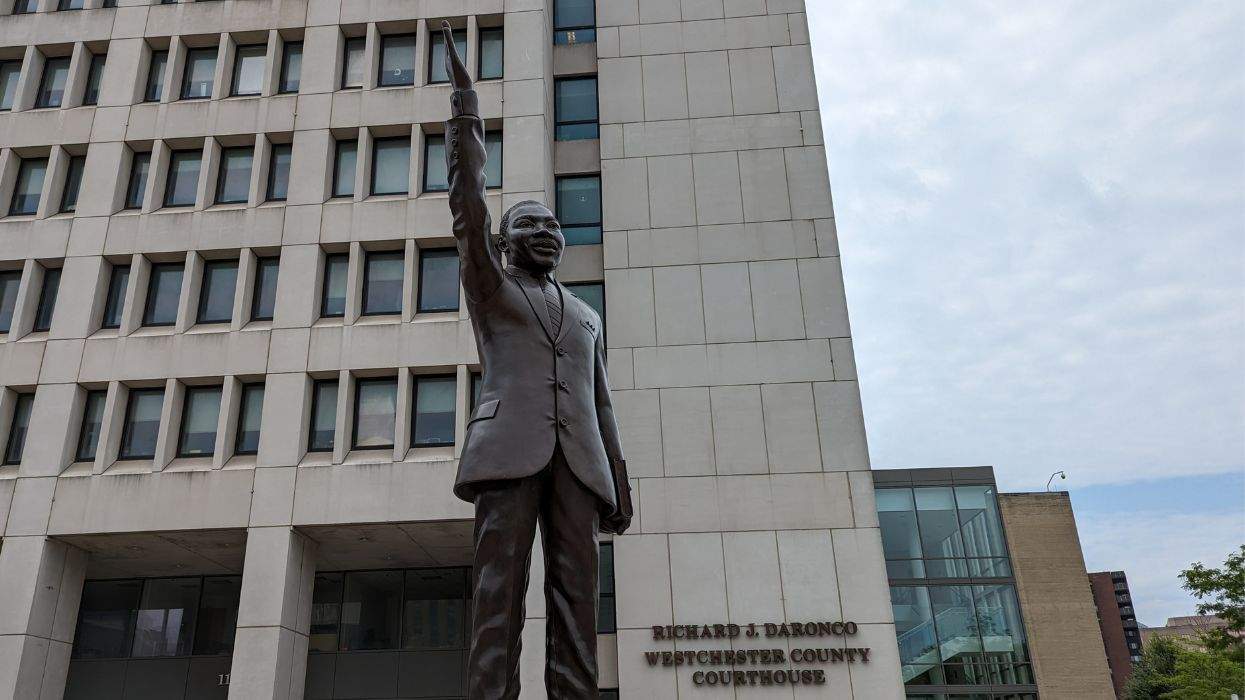UPDATE: Commissioners voted unanimously that the Stonewall Inn is a NYC landmark. More information here.
Public testimony is set to begin Tuesday before New York City's Landmarks Preservation Commission, on whether the historic Stonewall Inn should be designated as a city landmark.
The commission is expected to approve the declaration, according to The Wall Street Journal.
The once-illegal bar is widely considered the birthplace of the modern LGBT rights movement as the scene of the one of the first LGBT uprisings against police brutality on June 28, 1969.
The building is already on the National Park Service's list of National Historic Landmarks, and is located in the Greenwich Village Historic District, which prevents the building from being changed without the commission's approval.
The new designation, however, would provide additional safeguards to keep the building from being changed. According to New York magazine, it would also make the Stonewall Inn the first landmark recognized within a city historic district, and the first chosen for its ties to LGBT history.
"The agency has been working on this for some time," said Meenakshi Srinivasan, the commission's chairwoman, to the Journal. "LGBT Pride Month is an ideal occasion to recommend this iconic cultural site and recognize its central significance in the American LGBT movement."
The original Stonewall Inn, at 51-53 Christopher St., was located in what were originally two stables built in the 1840s and rebuilt in 1930. When Stonewall opened as a gay bar in 1967, it had an unmarked exterior, except for large, rusty, broken neon sign reading "Stonewall Inn," left by a previous tenant.
The 2011 documentary, Stonewall Uprising, said the original bar was mafia-owned and had no running water, just a tub for washing out used glasses.
In the early morning hours of June 28, 1969, eight police officers raided the bar allegedly in search of bootlegged alcohol, and began arresting some of the 200 people inside, especially men presenting as women. The raid was not an unusual occurrence.
But this time, some of the patrons resisted arrest, and a crowd gathered outside. Onlookers refused to disperse and scuffled with officers, some throwing pennies at the cops, then bottles, bricks, and other things.
The officers retreated inside and called for reinforcements, while the crowd used a parking meter to try to break down the door, said David Carter, who wrote Stonewall: The Riots That Sparked the Gay Revolution. The original Stonewall Inn, which spanned two buildings, closed later that year. One building is now the home of QQ Nails and Spa. The other is a smaller bar named Stonewall Inn. Both buildings are being considered for historical landmark statuses.















